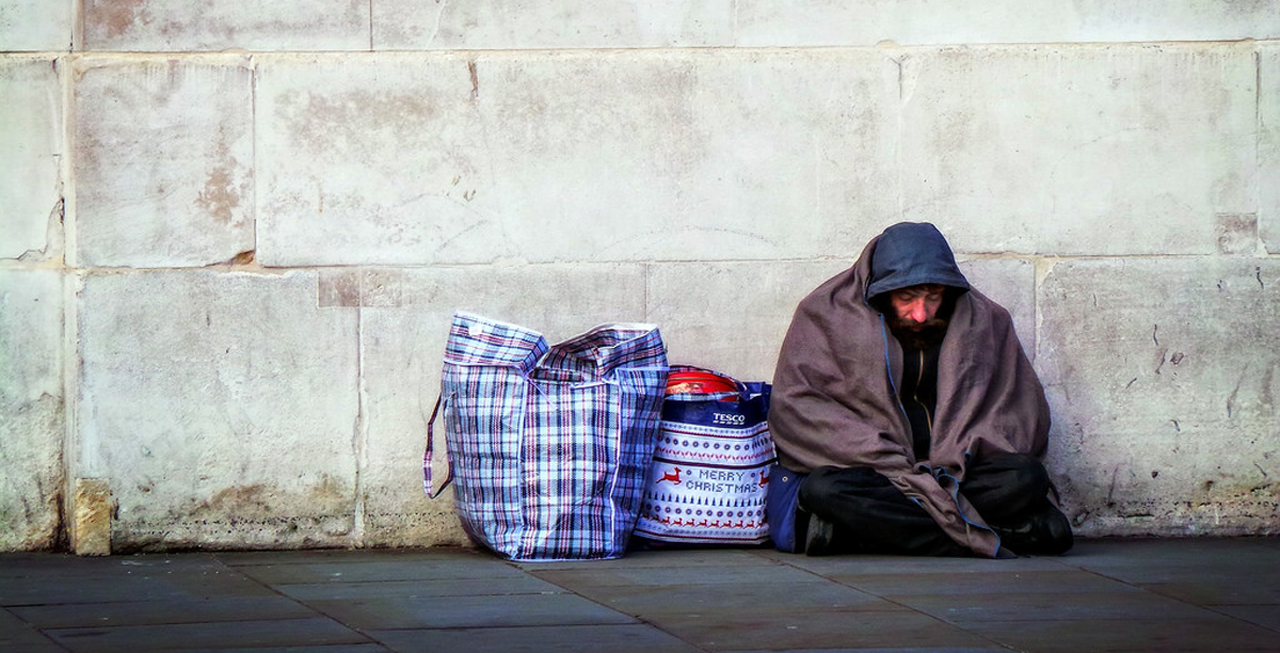Austerity and homelessness this Christmas
Rough sleeping has more than doubled since 2010 & the Tory's austerity agenda is only making the situation worse, argues Emma Bean
On Christmas day, Euston station will be transformed into a homeless shelter, with 200 rough sleepers served a dinner packed full of festive cheer by rail workers and charity staff. Charity plays a key role in the fight against societal injustice, and to turn a large space that will be unused on that day into something that helps others is hugely heartwarming. What better way to live out the true meaning of the day than by helping others?
A Network Rail representative said to the BBC: “Everything, including people’s time, has been donated.” Anyone who gives up their time to help others is an utter hero, and should be praised. But we should never forget that the scourge of homelessness has causes – and the Tories’ relentless pursuit of austerity come first and foremost on the list.
Even without seeing the stats, we all know how much rough sleeping has multiplied over the last few years, and you can’t walk through any town or city centre without seeing significant numbers of people bedding down for the night under whatever shelter they can find. Take a walk around Westminster – centre of our nation’s government – and there are people at every doorway. The borough of Westminster accounted for the highest number of rough sleepers in the country in 2016. Those who make up the Conservative government are confronted with these realities on a daily basis – and yet they still support these policies.
But the numbers themselves are stark – rough sleeping has more than doubled since 2010, with Shelter estimating that more than 250,000 people in England alone are homeless or without a permanent place to live. The life expectancy of someone who sleeps rough is just 47, which is 30 years lower than for the general population. In my borough of Haringey, there will be 3,140 families homeless this Christmas.
Rosena Allin-Khan put the question to the prime minister this week, that the 2,500 children who’ll wake up homeless in Wandsworth on Christmas day deserve better. All Theresa May could do was say that they would not be sleeping on the streets, and suggest that this was Allin-Khan’s inference.
But homelessness has always been about more than just rough sleepers, and that’s why the 97 per cent drop off in government-funded social house building since 2010 matters. For every council house not built, there’s yet another family kept in substandard private rented accommodation; stuck that bit longer on a waiting list; having to live in a B&B where there’s no space for the kids to do homework. Being in poverty is to have choices removed – and to be left without adequate housing, or not knowing where you might be spending the night is a feeling that sticks with you long after you might have stopped being homeless.
I was homeless after my family lost our farm, and that feeling of insecurity does not go quickly – even years after the problem might have been resolved.
The fact that there are such significant numbers of children who know this feeling first hand, who might see their parents working multiple jobs and reliant on foodbanks all the same, should shame us all in a country as wealthy as ours. And it is in large part caused by this government’s unrelenting pursuit of austerity and an ideological fixation on shrinking the state – no matter the human cost.
May’s response to Allin-Khan in this context – to haughtily point out that families aren’t sleeping rough – shows just how detached the government is from the reality of the problem: it’s about more than just those living on the streets. Crude benefit cuts, the Universal Credit shambles and the sell-off of council houses are all making this problem worse
This Christmas, let’s praise the work of staff and volunteers at Crisis, Euston, St Mungo’s and the many other shelters and charities that exist – but not forget that it is the failings of the Tory state that have lead us here.
If Labour were in power, we know that this problem would not exist to the extent that it currently does – and, at Christmas time, we should channel our anger at this injustice into campaigning for Labour’s return to government.

